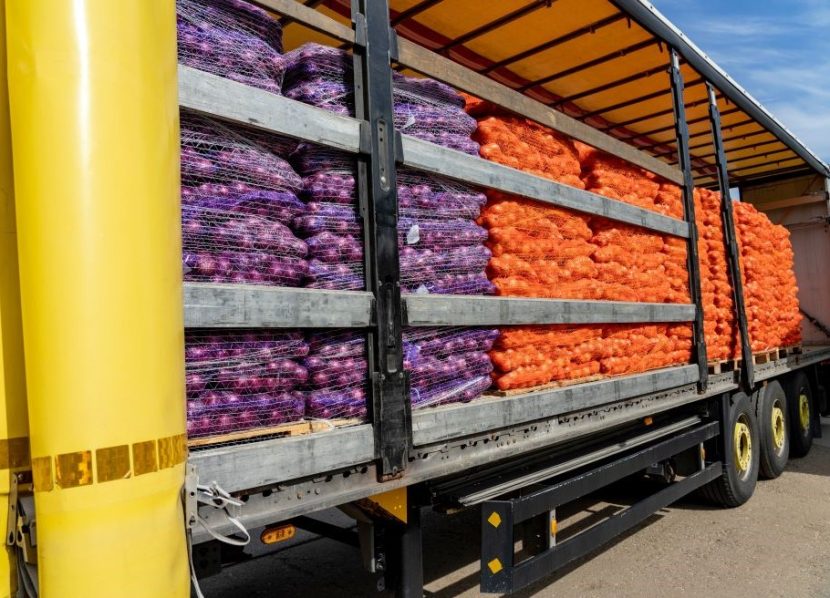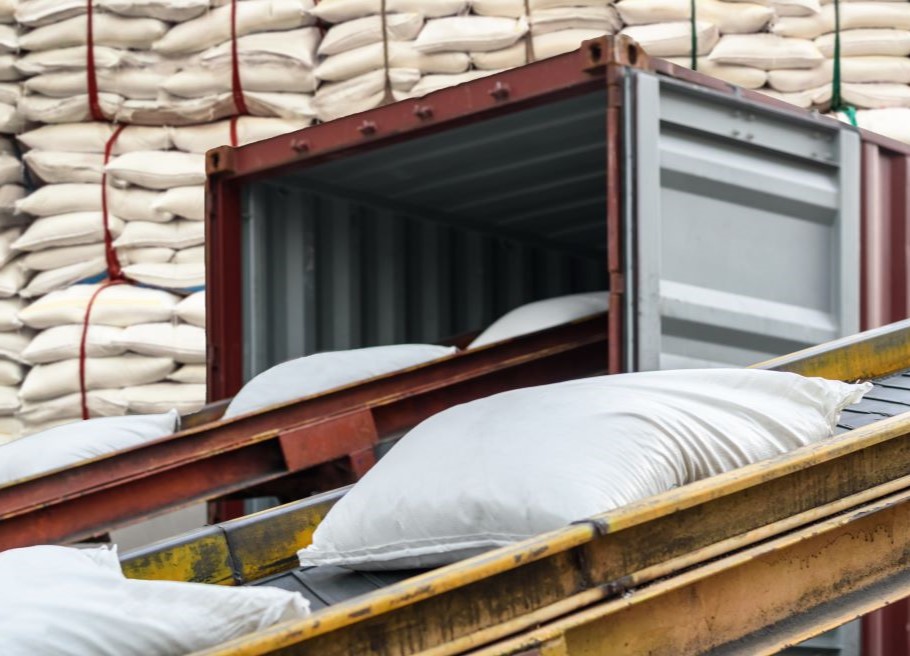Driving Food Safety: The Role of Transportation Management Systems
By Nick Fryer
When you consider the issue of food safety in global supply chains, you can’t overlook the challenge of supply chain disruptions. After all, successfully shipping food from point A to point B requires the orchestration of a multitude of cold chain logistics elements, from transportation to warehousing. Any interruptions could mean food spoilage, lost revenue, ill customers, and liabilities.
Unfortunately, such disruptions have become more commonplace than business leaders would like.
“At any time, anything can go wrong that will shut down an entire company,” writes John W. Spink, assistant professor in the Department of Supply Chain Management at the Eli Broad College of Business at Michigan State University.
Transportation Management Systems bolster food safety by providing real-time visibility, ensuring compliance, and mitigating the impact of supply chain disruptions.
To address the challenges, your organization must plan for worst-case scenarios. With the help of a Transportation Management System (TMS), you can reduce the risks related to food spoilage, contamination, and regulatory compliance. This article delves into how these modern, logistics software platforms can create safer transportation strategies for perishable goods, ensuring temperature control, traceability, and business continuity.
How transportation management systems ensure food safety
According to the World Health Organization (WHO), an estimated 600 million people become ill each year due to food contamination. In part, such food safety issues relate to the global demand for a wide variety of foods, which has created a complex food chain and increased supply chain demands.
With transportation management systems, food safety can become a priority at every step of the food journey, from production to plate. By optimizing logistics, these systems ensure proper care and handling of temperature-sensitive goods throughout the supply chain.
Benefits of Transportation Management Systems (TMS)
Risk management
TMS enables companies to anticipate potential issues before they turn into major problems. Utilizing a third-party or fourth-party logistics company for food handling can lead to much better outcomes than traditional approaches, as these logistics service providers (LSP) often provide a TMS as part of their service offering. With route planning and real-time shipment tracking, these systems can help prevent temperature fluctuations, cross-contamination, and food spoilage.
Greater resilience to food crises
Implementing quality control measures, building up inventories, following safety measures, and absorbing disruptions are important steps in food safety. However, research shows that these kinds of traditional methods of food safety management are not sufficient for preventing food incidents. In other words, it’s impossible to eliminate risk in the food supply chain; therefore, building supply chain resilience is key to improving food safety and mitigating the unpredictable nature of global supply chains.
For example, consider the 2021 Suez Canal blockage. The incident caused a massive backlog of ships, delayed global shipments, and compromised supply chain reliability.
Transportation management systems are designed to mitigate the impact of such events. These systems can help you spot issues before they become crises, identify solutions, and adapt and recover more quickly from disruptions to stabilize your supply chain despite unforeseen challenges. As a result, they can bolster your food supply chain resilience by offering greater protection against food spoilage and other food safety risks.
Compliance with regulations
Transportation management systems make it easier to comply with food safety standards, including the Food Safety Modernization Act (FSMA). This regulation aims to prevent practices that compromise food safety during transportation, such as improper refrigeration and inadequate vehicle cleaning. With a TMS, you gain real-time transparency and visibility into transport conditions, ensuring regulatory compliance and enhancing food safety.
Leveraging technology to safeguard food in transit
Technology is improving food safety, enhancing the ability to monitor and manage food products during transit.
- Internet of Things (IoT) sensors: IoT-enabled sensors can provide real-time data on temperature, humidity, and other environmental factors. Companies that track these metrics can promptly identify any variations and take corrective actions.
- Artificial Intelligence (AI) in route optimization: AI-powered transportation management systems can optimize delivery routes to reduce transit times. This limits food products’ exposure to conditions that could lead to spoilage.
By adopting these advanced technologies, food business operators can enhance food safety while increasing operational efficiency.
Preventing contamination with temperature-controlled logistics
The complex process of cold chain logistics is no easy undertaking. Even companies with strong supply chains must be extra cautious with refrigerated and frozen food products, as any delay could mean sacrificing product quality and safety.
Cold chain logistics maintains appropriate temperatures for perishable items like meat, dairy, and seafood to prevent food safety issues like contamination and bacterial growth. Transportation management systems are an essential component of this cold chain, ensuring smooth coordination between warehousing and distribution.
For example, advanced refrigerated trucks outfitted with real-time temperature sensors can monitor any temperature deviations during transit. Operators receive real-time alerts on any potential problems so they can take immediate corrective action.
Proper packaging and compartmentalized transportation further reduce the risk of cross-contamination — ensuring raw products stay isolated from ready-to-eat items.
Enhancing supply chain traceability for greater food safety and transparency
U.S. Food and Drug Administration guidelines on food traceability require monitoring a food product closely throughout every step in the supply chain — from production and processing to distribution. The goal is upholding food safety and responding rapidly to cases of foodborne illness or contamination.
Given the high stakes of food safety — from both a consumer and manufacturer perspective — it’s imperative that food business operators gain greater visibility into their supply chains. With traceability tools, companies can trace food products back to their original source in the event of food contamination or product recalls. With traceability, only the affected products get pulled from store shelves, minimizing disruptions.
At the same time, traceability meets consumers’ growing demand to know not only what’s in their food but also where it comes from. In a market opportunities survey from Purdue University , 72% of respondents said transparency is extremely important to them when selecting food brands and retailers to patronize.
Transportation management systems allow food businesses to meet these demands by providing clear records of ingredient sourcing and safety measures during transit.
Best Practices for Food Safety in Managed Transportation
TMS have become indispensable in global supply chains. By leveraging cold chain logistics, technology innovations, and improved traceability, food business operators can reduce the risk of foodborne illness and contamination.
As businesses continue to adapt to stricter regulations and heightened consumer expectations for fresh, prompt delivery, transportation management systems will be essential. They’re a wise investment that can result in safer food production and delivery — from production to consumption.
About the Author:
Nick Fryer is Vice President of Marketing for Sheer Logistics. He has over a decade of experience in the logistics industry, spanning marketing, public relations, sales enablement, M&A and more at 3PLs and 4PLs including AFN Logistics, and GlobalTranz.

-
 FeaturedRisk management
The Cost of a Breach: What a Cyberattack Could Mean for Food Safety Recalls
FeaturedRisk management
The Cost of a Breach: What a Cyberattack Could Mean for Food Safety Recalls
-
 FeaturedRisk management
Securing the Food Chain: How ISO/IEC 27001 Strengthens Cybersecurity
FeaturedRisk management
Securing the Food Chain: How ISO/IEC 27001 Strengthens Cybersecurity
-
 FeaturedRisk management
Revolutionizing Food Safety Training: Breaking Out of the “Check-the-Box” Mentality
FeaturedRisk management
Revolutionizing Food Safety Training: Breaking Out of the “Check-the-Box” Mentality
-
 GFSI Standards
GFSI 2025: Building Trust, Tech-Forward Solutions, and Global Unity in Food Safety
GFSI Standards
GFSI 2025: Building Trust, Tech-Forward Solutions, and Global Unity in Food Safety
-
 FeaturedFood Safety
Integrated Pest Management: Strategies to Protect Your Brand’s Reputation
FeaturedFood Safety
Integrated Pest Management: Strategies to Protect Your Brand’s Reputation
-
 FeaturedFood Safety Culture & Training
No Open Door Policy: Challenges That Impact Pest Control in Food Processing Plants
FeaturedFood Safety Culture & Training
No Open Door Policy: Challenges That Impact Pest Control in Food Processing Plants



